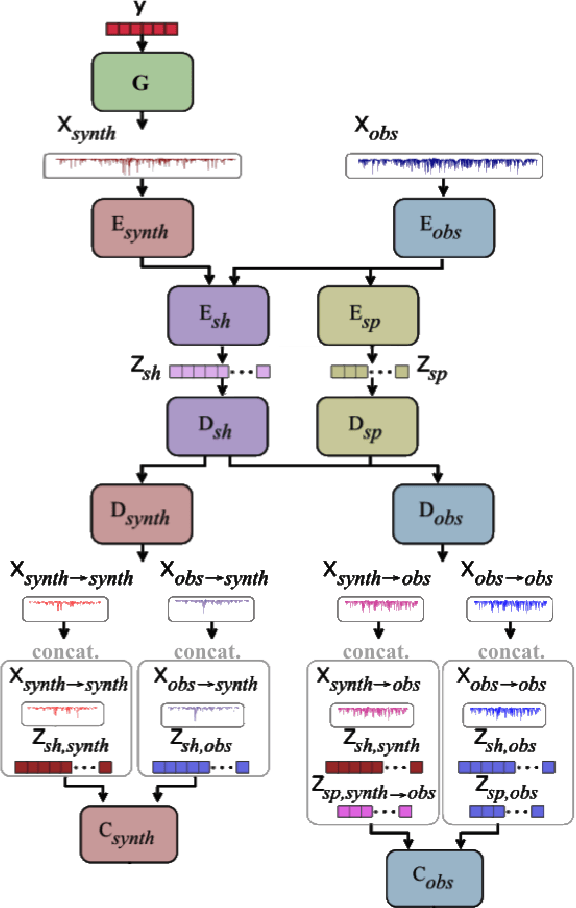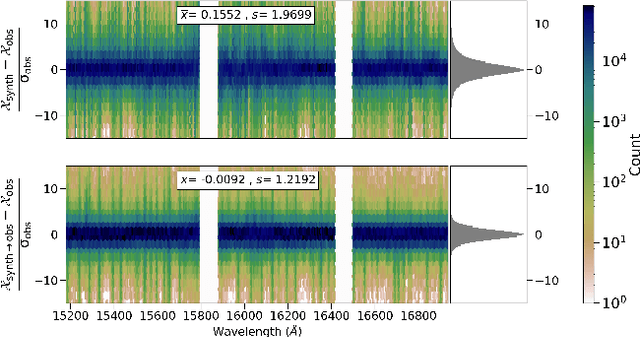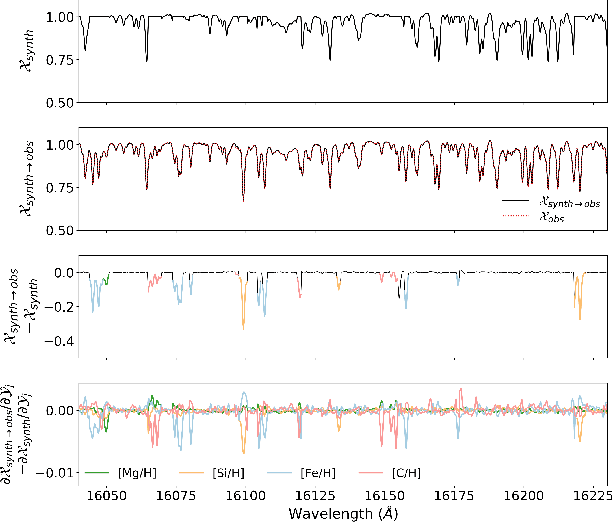Interpreting Stellar Spectra with Unsupervised Domain Adaptation
Paper and Code
Jul 06, 2020



We discuss how to achieve mapping from large sets of imperfect simulations and observational data with unsupervised domain adaptation. Under the hypothesis that simulated and observed data distributions share a common underlying representation, we show how it is possible to transfer between simulated and observed domains. Driven by an application to interpret stellar spectroscopic sky surveys, we construct the domain transfer pipeline from two adversarial autoencoders on each domains with a disentangling latent space, and a cycle-consistency constraint. We then construct a differentiable pipeline from physical stellar parameters to realistic observed spectra, aided by a supplementary generative surrogate physics emulator network. We further exemplify the potential of the method on the reconstructed spectra quality and to discover new spectral features associated to elemental abundances.
 Add to Chrome
Add to Chrome Add to Firefox
Add to Firefox Add to Edge
Add to Edge